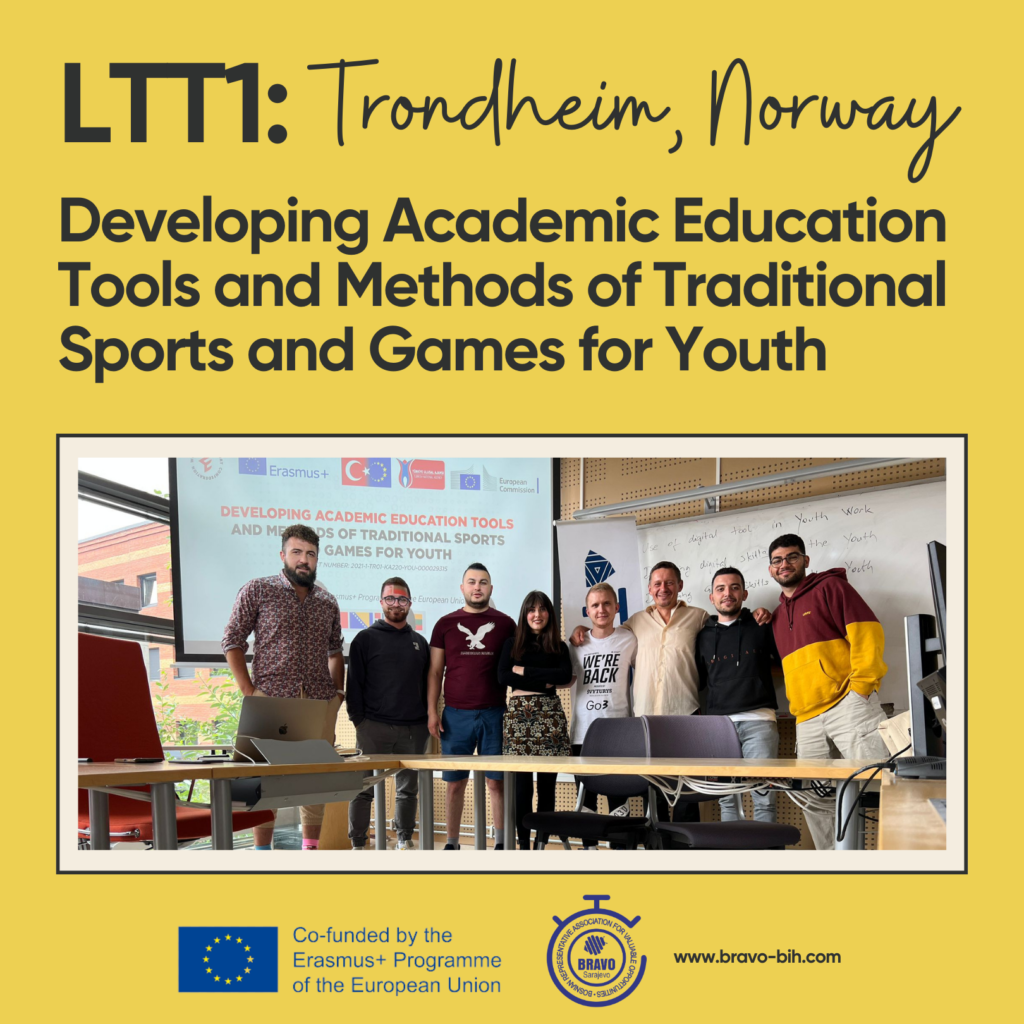
First Learning Teaching Training under the name of “Green and Digital Skills” within the project was held in the beautiful Trondheim, Norway from 10th to 16th of July. This was a chance for both project consortium and young people from all partner countries to come together and dive into the topic of emerging digital world. Main aim of this LTT was to enhance the quality and innovation of youth works that support the potential of young people by promoting skill development and digital competencies. LTT lasted for 5 days through which young people working as youth workers had a chance to learn and discuss about the challenges of digital era while being aware of pressing need to address environmental concerns. Imran, one of the youth workers that took part in this LTT, says that the most important thing he got from the training is the awareness about the issues in modern society and discussion on the available tools to use to tackle it. Education, and especially non-formal education, has a real significance in shaping the minds of young people and preparing them to tackle the challenges of modern age. This is one of the reasons we chose Norway as a place of our meeting. Read below why we did so.
Norway ranks among the top 3 countries in the world for the quality of education
The choice of Trondheim as the seminar’s venue is no mere coincidence. Known as a city of universities, Trondheim plays a pivotal role in education in Norway, and by extension, the world. The country’s commendable ranking, being among the top three globally in education quality, underscores the importance and influence of its educational institutions and initiatives.
Some of the reasons for that are:
- Education for all: One of the foundational principles of the Norwegian education system is that everyone, regardless of their socio-economic background, should have an equal right to education. This principle ensures that everyone has access to quality education from an early age.
- Well-funded Public Education: Norway has a high standard of living and dedicates a significant portion of its national budget to education. This ensures that schools have the necessary resources, and students have access to well-maintained facilities, materials, and qualified teachers.
- Qualified Teachers: The teaching profession in Norway is highly respected, and teachers are generally well-trained. A master’s degree is required to become a teacher, ensuring that educators have both depth and breadth in their subject matter and pedagogical knowledge.
- Student-Centered Learning: The Norwegian curriculum is designed to be more student-centric, focusing on critical thinking, problem-solving, and analytical skills rather than rote memorization.
- Language Skills: English proficiency is high in Norway, and students start learning English at a young age. This ensures that they can access global resources and literature, broadening their horizons.
Takeaway from this LTT
As the world leans more towards sustainable and digital solutions, trainings like this are just one more testament of the commitment of educators, policymakers, and partners to cultivate a future-ready generation. Digital era is the reality of young people and it should be applied to every aspect of life, every topic and in that way it will be more open to discussion. Topic of our project, Traditional sports and games and the creation of digital platform aimed at keeping it alive and integrated is one of the best examples on how we as a society should proceed in addressing the challenges of digital era.
We will be getting ready for LTT2 which will be held in Kaunas, Lithuania. Stay tuned!
